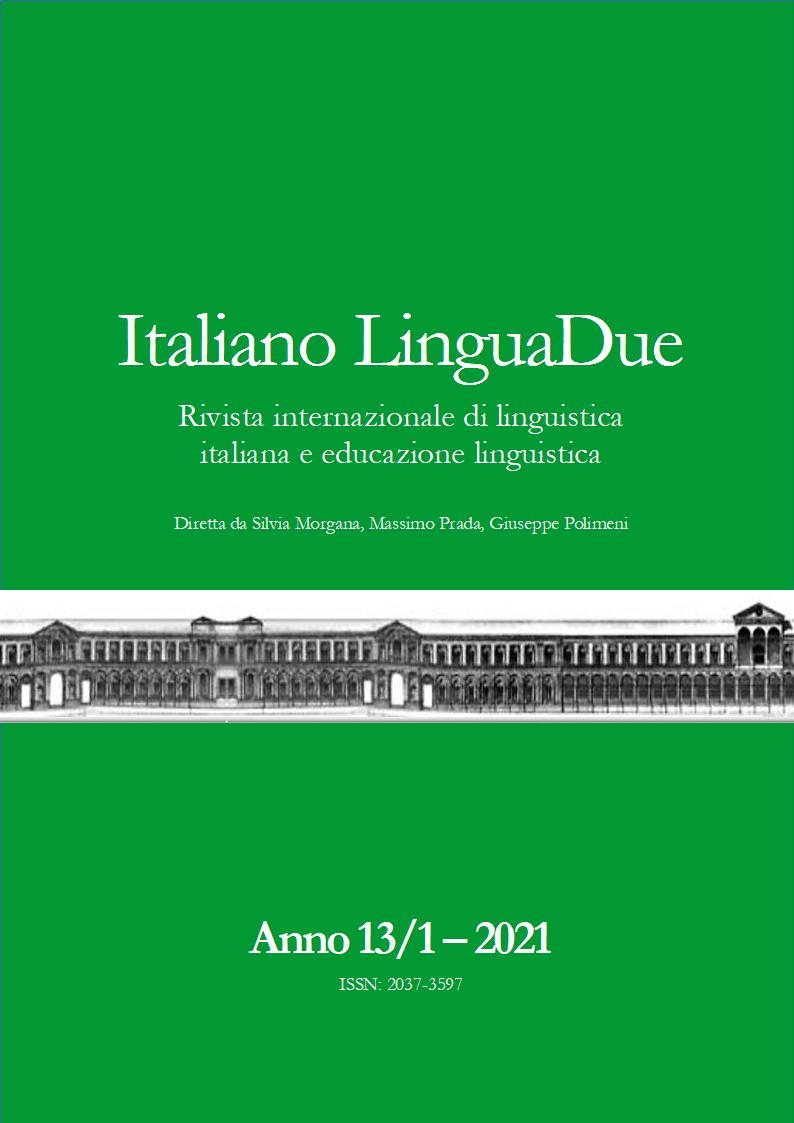DIVERTENTE O AMUSANTE? INTERFERENZE NELL’ITALIANO L3 DI APPRENDENTI NEDERLANDOFONI: ANALISI E CONFRONTO TRA PRODUZIONE SCRITTA E ORALE
DOI:
https://doi.org/10.13130/2037-3597/15868Abstract
Questo contributo offre un’analisi dell’italiano come terza lingua (L3) di apprendenti nederlandofoni. In particolare, questo lavoro mira ad analizzare gli errori di interferenza linguistica esaminando come e se essi differiscano nella produzione orale e scritta. A questo scopo è stato appositamente creato ed analizzato un corpus di testi scritti e interviste orali in italiano L3 di sette studenti nederlandofoni dell’università di Gand (Belgio). Come lingue di background sono state considerate le diverse L2 precedentemente acquisite, ovvero il francese, l’inglese e il tedesco. Dal punto di vista qualitativo, i risultati di questo lavoro rivelano che le interferenze linguistiche avvengono principalmente a livello sintattico e sull’uso delle preposizioni. Dal punto di vista quantitativo, questo studio suggerisce che gli apprendenti nederlandofoni di italiano L3 commettono il più delle volte errori di interferenza dovuti alla loro L1 (il nederlandese), piuttosto che alle loro L2. Infine, i risultati indicano che di tutte le lingue di background, solo la L1 causa più interferenze nella produzione parlata rispetto a quella scritta, mentre le L2 mostrano la tendenza opposta.
Funny or amusing? Interference in L3 Italian of native-speaking learners: analysis and comparison between written and oral production
This paper analyzes Italian as the third language (L3) for Dutch-speaking learners. In particular, this study aims at analyzing interference errors and how and whether they differ in oral and written production. For this purpose, we specifically created and analyzed a corpus of both written texts and oral interviews in L3 Italian from seven Dutch-speaking learners at Ghent University (Belgium). The different previously acquired L2s, namely French, English and German, were considered background languages. From a qualitative point of view, the results of this research reveal that linguistic interference occurs mainly at a syntactic level and in the use of prepositions from a quantitative point of view, this study suggests that Dutch-speaking learners of Italian L3 most often commit interference errors due to their native language (Dutch), rather than their L2s. Finally, the results indicate that of all background languages, only the L1 caused more interference in spoken production than in written production, while the L2s showed the opposite trend.




